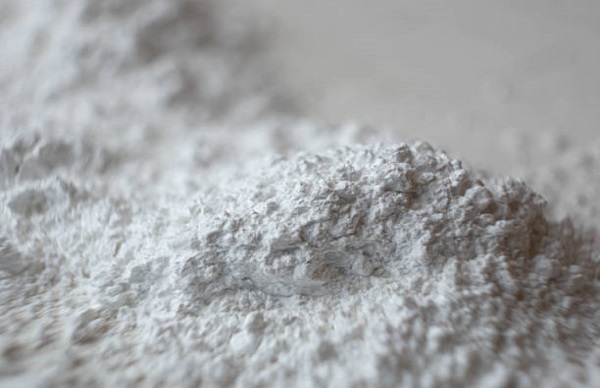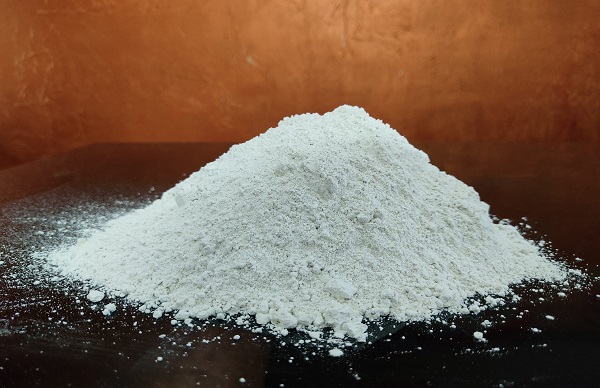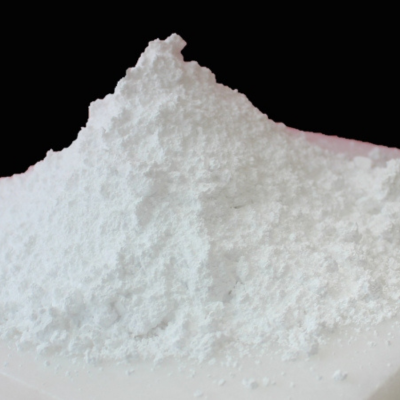
What are the uses of talc lumps?
July 17, 2023
Is talc powder safe for skin?
August 7, 2023Introduction:
Calcium carbonate is an essential mineral compound with extensive applications across various industries. As trusted and responsible Calcium Carbonate Powder Manufacturers in India, Sudarshan Group recognizes the significance of this versatile substance. In this blog post, we will delve into the three primary types of calcium carbonate, exploring their unique properties and diverse applications. By shedding light on these variations, we aim to provide a comprehensive understanding of calcium carbonate and its importance in numerous industries.
Ground Calcium Carbonate (GCC)
About:
Ground Calcium Carbonate, commonly referred to as GCC, stands as the most widely used type of calcium carbonate. It is obtained by grinding limestone or marble rocks into a fine powder. GCC is available in various particle sizes, ranging from coarse to ultra-fine, to meet different industrial requirements.
Properties:
GCC possesses several noteworthy properties. Firstly, its particle size can be tailored to specific needs, making it suitable for a wide range of applications. Additionally, it exhibits excellent whiteness, which is highly desirable in industries requiring a bright, clean appearance. Moreover, it is characterized by high chemical purity, ensuring minimal impurities that could interfere with desired reactions.
Applications:
The applications of GCC are vast. In the paper industry, it serves as a filler and coating agent, enhancing opacity, brightness, and bulkiness while reducing production costs. Paints and coatings benefit from this mineral as it acts as an extender and pigment, providing improved coverage, enhanced durability, and cost reduction. The plastic industry utilizes this compound to enhance mechanical properties, improve dimensional stability, and serve as a cost-effective filler. Furthermore, it finds applications in the construction industry, contributing to the production of adhesives, sealants, cement, mortar, and stucco.
Precipitated Calcium Carbonate (PCC)
About:
Precipitated Calcium Carbonate, known as PCC, is manufactured through a chemical process involving the reaction of calcium hydroxide and carbon dioxide. This results in the formation of a pure, finely ground calcium carbonate powder.
Properties:
PCC exhibits distinct properties that set it apart from other forms of calcium carbonate. The controlled particle morphology of PCC, often in the form of small, uniform spheres, contributes to its unique properties and applications. It offers precise control over particle size distribution, allowing for customization to meet specific requirements. Furthermore, it boasts high purity due to its synthetic production process, making it ideal for applications that demand exceptional quality.
Applications:
PCC finds extensive use in the paper industry as a filler and coating pigment. Its fine particle size and spherical morphology enhance paper properties such as opacity, smoothness, and printability. In the pharmaceutical sector, it serves as a pharmaceutical excipient, acting as a binder, disintegrant, or pH adjuster in tablet formulations. Additionally, it is utilized in the food and personal care industries as a calcium supplement in food products and an abrasive and polishing agent in toothpaste and cosmetics. It also finds applications in environmental remediation, particularly in water treatment processes, where it neutralizes acidic water and removes heavy metal ions.
Nano Calcium Carbonate
About:
Nano Calcium Carbonate, often referred to as NanoCaCO3 or NCC, denotes ultra-fine calcium carbonate particles typically in the nanometer range. It is produced using advanced manufacturing techniques that enable precise control over particle size and surface properties.
Properties:
NanoCaCO3 exhibits unique properties attributed to its extremely small particle size, usually less than 100 nanometers. The significantly larger surface area of this mineral compared to other forms of calcium carbonate contributes to improved dispersibility and compatibility with various matrices. Moreover, the surface of NCC particles can be modified to impart specific functionalities, enabling a wide range of applications.
Applications:
NanoCaCO3 finds application in various industries. In the realm of polymers and composites, it acts as a filler, enhancing mechanical properties, thermal stability, and barrier properties. Coatings and paints benefit from this mineral, as it improves scratch resistance, gloss, and UV protection properties. In the field of energy storage, it is employed in lithium-ion batteries as a conductive additive and for improving the stability of electrolytes. Furthermore, NCC is explored in biomedical and pharmaceutical applications, such as drug delivery systems, tissue engineering, and as a calcium supplement due to its small particle size and potential bioactivity.
Conclusion
Calcium carbonate, in its various forms, plays a vital role in numerous industries, offering a wide range of applications. Ground Calcium Carbonate (GCC), Precipitated Calcium Carbonate (PCC), and Nano Calcium Carbonate (NanoCaCO3) represent the three main types, each possessing unique properties suitable for diverse industrial requirements. Sudarshan Group takes pride in supplying high-quality calcium carbonate that cater to the specific needs of different industries. By understanding the distinctions between these calcium carbonate types, businesses can make informed decisions regarding their application needs, thereby unlocking the full potential of this remarkable mineral compound.



